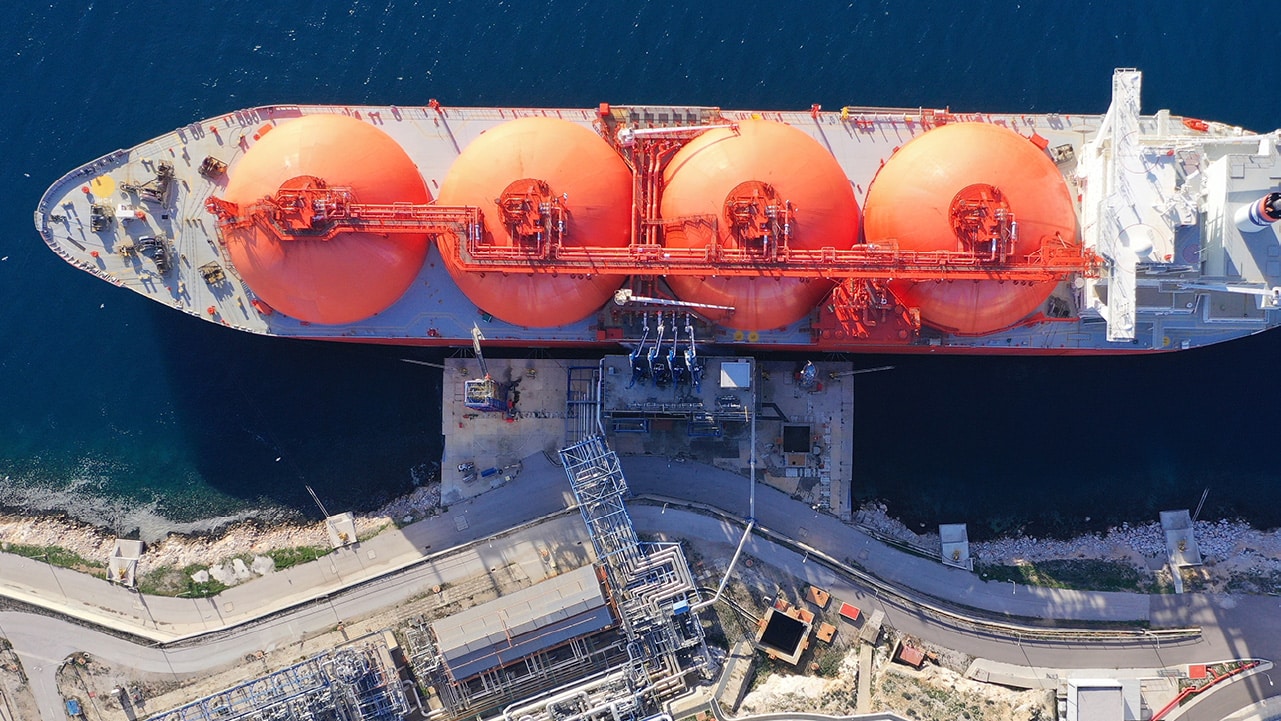ISO 21009 LNG Cargo Containment System Performance Testing
The International Organization for Standardization (ISO) has developed a series of standards to ensure the safe and reliable design, installation, operation, and maintenance of liquefied natural gas (LNG) cargo containment systems. Among these is ISO 21009, which specifically addresses performance testing requirements for LNG containment systems on ships.
The primary objective of this service is to ensure that LNG cargo containment systems meet the stringent performance criteria outlined in ISO 21009. This standard provides a comprehensive framework for evaluating the integrity and operational reliability of these critical components under various loading conditions, ensuring they can withstand the stresses encountered during LNG transport.
The testing process involves subjecting the containment system to simulated operational scenarios that replicate real-world conditions. Key parameters include temperature changes, pressure fluctuations, and thermal insulation performance. The system must demonstrate its ability to maintain the integrity of the LNG cargo throughout these cycles without compromising safety or efficiency.
Our laboratory adheres strictly to ISO 21009 guidelines when performing this service. We employ state-of-the-art equipment and methodologies to ensure accurate and reliable test results. Our experienced engineers and technicians are well-versed in both the theoretical aspects of LNG containment systems and practical testing techniques, allowing us to provide a thorough assessment of your system's performance.
By partnering with our laboratory for ISO 21009 compliance testing, you can ensure that your cargo containment systems meet the highest industry standards. This not only enhances safety but also contributes to operational efficiency and regulatory compliance. Our services are tailored to help you achieve these goals while minimizing disruptions to your business operations.
The benefits of adhering to ISO 21009 go beyond mere compliance; it ensures that your LNG containment systems perform optimally under diverse conditions, enhancing overall safety and reducing the risk of leaks or breaches. This is crucial for maintaining the integrity of the cargo throughout its journey from production facilities to end-users.
Our testing process includes detailed documentation of all test procedures and results, ensuring transparency and traceability in your compliance efforts. This allows you to confidently demonstrate that your systems meet the rigorous requirements set forth by ISO 21009.
- Comprehensive evaluation of containment integrity under various loading conditions
- Thermal insulation performance testing
- Pressure fluctuation resistance assessment
- Detailed documentation and reporting for regulatory compliance
We understand the importance of this service in ensuring safe and efficient LNG transport. Our commitment to accuracy, reliability, and adherence to international standards is reflected in every aspect of our ISO 21009 testing process.
Benefits
Partnering with us for ISO 21009 LNG Cargo Containment System Performance Testing offers several key advantages:
- Enhanced Safety: By ensuring that your containment systems meet the stringent requirements of ISO 21009, you significantly reduce the risk of leaks or breaches during transport.
- Operational Efficiency: Our tests help identify potential weaknesses in your system early on, allowing for timely repairs and maintenance to avoid costly disruptions.
- Regulatory Compliance: Stay ahead of regulatory changes by ensuring that your systems consistently meet the latest industry standards.
- Transparency and Traceability: Detailed test documentation provides a clear record of your compliance efforts, supporting ongoing quality management initiatives.
- Operational Confidence: Knowing that your systems are thoroughly tested and compliant with international standards instills confidence in your operations.
These benefits translate directly into improved safety, operational reliability, and regulatory adherence, all of which contribute to the overall success of your LNG transport business.
Industry Applications
The ISO 21009 LNG Cargo Containment System Performance Testing service is particularly valuable for:
- LNG Carriers: Ensuring that the cargo containment systems on board your vessels meet the highest safety and performance standards.
- LNG Terminals: Validating the integrity of storage tanks and other containment structures at receiving terminals.
- Shipbuilders: Testing newly designed LNG containment systems to ensure they comply with international regulations before installation.
- R&D Engineers: Evaluating new designs and materials for potential use in LNG transport applications.
Our service is applicable across the entire marine sector, providing essential support for organizations involved in the design, construction, operation, and maintenance of LNG cargo containment systems.
Quality and Reliability Assurance
The quality and reliability assurance processes associated with ISO 21009 LNG Cargo Containment System Performance Testing are critical for maintaining the highest standards of safety and performance. Our laboratory employs a multi-step approach to ensure that all tests meet or exceed the stringent requirements set forth by this international standard.
- Pre-Test Inspection: Conducting an initial inspection of the containment system to identify any potential issues before testing begins.
- Loading and Unloading Protocols: Simulating real-world cargo handling procedures to assess system performance under various loading conditions.
- Instrumentation Calibration: Ensuring that all test instruments are accurately calibrated to provide reliable data throughout the testing process.
- Data Analysis: Thoroughly analyzing and interpreting test results to identify any areas for improvement or potential concerns.
We also offer post-test recommendations based on our findings, helping you implement necessary improvements to further enhance system performance. This comprehensive approach ensures that your containment systems not only meet current standards but are also prepared for future regulatory changes.





